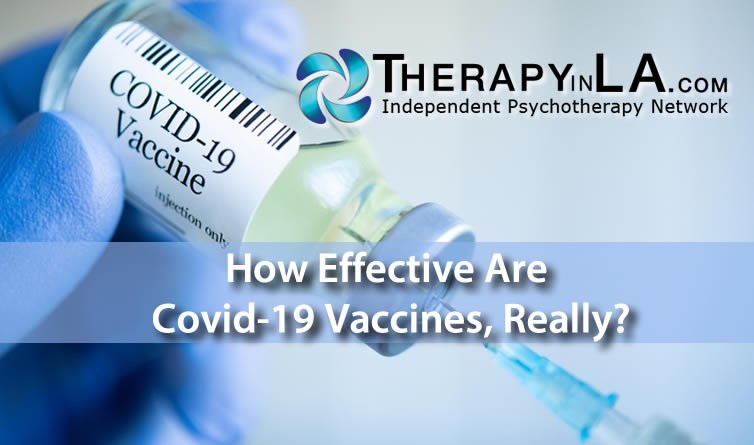HOW EFFECTIVE ARE COVID-19 VACCINES, REALLY?
HOW EFFECTIVE ARE COVID-19 VACCINES, REALLY?
The most basic measure of the effectiveness of the COVID 19 vaccines is simple: thus far, only two people have died after being vaccinated, according to reports available. One death in Florida was due to a rare blood disorder, not COVID. One death in California is of still undetermined causes. Furthermore, very few people vaccinated have needed to be hospitalized. Thus, in an ultimate sense, the vaccines are highly effective at saving lives, according to the early data coming out. And, this is true for all the vaccines being used or being developed: Moderna, Pfizer, AstraZeneca, Novavax, and Johnson & Johnson. (https://mail.google.com/mail/u/2/?tab=km#label/IPN+Blog/FMfcgxwLsJxffMCPfprbftZprdWGtPFC) (https://www.latimes.com/california/story/2021-01-26/questions-surround-death-of-covid-vaccine-recipient) (https://www.medpagetoday.com/special-reports/exclusives/90917).
Public perception seems to be more negative than this because of how the word “effective” is being defined. In researching vaccines, effective means preventing people from developing any degree of the illness. While that’s true with horrible diseases like Ebola or rabies, it’s not true for most corona viruses. These viruses have impacted people for decades, maybe centuries. The common cold is usually from a corona virus.
To return to normal life, it’s sufficient to reduce the threat to a level of the common cold: a period of some discomfort, maybe having to stay home from work or school, and then being able to resume life’s activities. The virus becomes a tolerable, non-life-threatening phenomenon, if admittedly uncomfortable. As Dr. Ashish Jah, dean of Brown University’s School of Public Health puts it: “I don’t actually care about infections. I care about hospitalizations and deaths, and long-term complications.”
The five vaccines listed above have been tested on about 75,000 people in research trials. Not one of them has died from COVID 19. Only a handful have been hospitalized from the virus.
Compare that to 75,000 Americans not vaccinated. About 150 of them have died, if you figure the usual percentages. Several hundred have been hospitalized. A typical flu season for 75,000 American results in 5-15 deaths, and more than 100 hospitalizations.
Any vaccine that makes COVID 19 milder than a typical flu is effective. The percentages quoted for various vaccines about effectiveness are prevention of severe illness. Data about avoiding hospitalizations and death are not quoted, given how effectiveness is defined.
While the newer variants of the virus seem to be more contagious and severe, the limited vaccinations among people with these variants still seem to prevent death. The more limited protection from the vaccines to these variants may be less effective in preventing infection, yes, but early data seems to indicate that more severe illness and death are being prevented. There is uncertainty about the variants since data is so limited at this point. But uncertainty is not necessarily bad news.
One additional note from personal communication with someone living in Israel, where vaccinations have proceeded with much greater speed than in the US. Since the medical system there is highly centralized and organized, the Israelis are also conducting preliminary research on the vaccines. Among the people who have completed both doses, they have found anti-body levels to COVID to be six times higher than for people who survived the virus. Thus, the vaccines do seem to prompt a very robust anti-body response in the body, at least from this early data.
Thus, the intense emotional responses we may have about the vaccines (either in favor or against), are counter-balanced by what the data shows. Therapists at IPN are very committed to helping clients identify and acknowledge their emotions, understand them and then also consider data and reliable information. That’s how we all can make more sound choices for ourselves.
Alan M. Solomon, Ph.D. is a clinical psychologist in private practice in Torrance, CA. A member of the Independent Psychotherapy Network, he can be reached at 310 539-2772, or dralanms@gmail.com Telehealth sessions are available.
Copyright 2021 by Alan M. Solomon, Ph.D.

